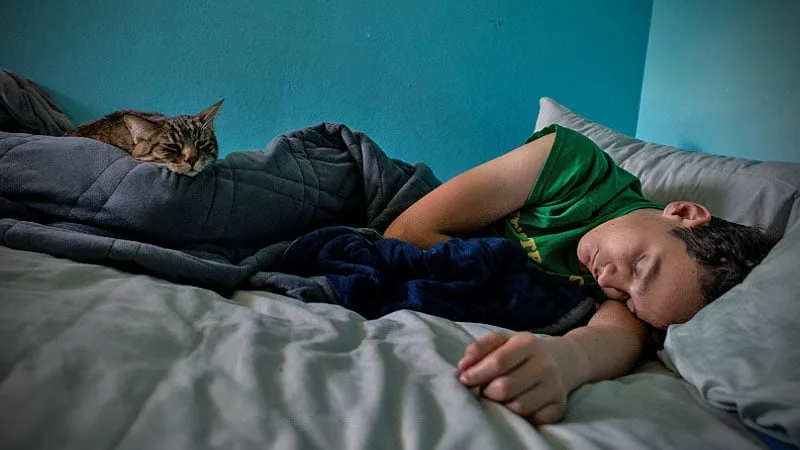Teen Sleep Deprivation: A Complex Issue
Recent studies highlight a concerning trend: teenagers are increasingly sleep-deprived. This isn’t simply a matter of late nights; it’s a complex interplay of biological factors and social pressures that can lead to serious consequences.
The Circadian Rhythm Shift
One key factor is the natural shift in circadian rhythms that occurs during adolescence. This biological clock, which regulates sleep-wake cycles, tends to delay in teenagers, making it harder for them to fall asleep early and wake up early. This misalignment with typical school schedules can result in chronic sleep loss.
The Power of Peer Influence
Adding to the problem is the strong influence of peers during these formative years. Teenagers often prioritize social activities and interactions, which can further encroach on their sleep time. The desire to fit in and be accepted can lead to late-night socializing, screen time, and other activities that disrupt sleep patterns.
Consequences of Sleep Deprivation
The effects of sleep deprivation on teenagers are far-reaching. Chronic sleep loss can impair cognitive function, making it harder to concentrate in school and retain information. It can also negatively impact mood, leading to irritability, anxiety, and depression.
Mental Health Risks
- Increased risk of depression
- Heightened anxiety levels
- Difficulties in emotional regulation
Academic Performance
- Reduced concentration and focus
- Impaired memory and learning
- Lower academic achievement
Behavioral Problems
- Increased impulsivity
- Higher risk of risky behaviors
- Potential for self-destructive tendencies
Addressing the Issue
Combating teen sleep deprivation requires a multi-faceted approach. Parents, educators, and healthcare professionals all have a role to play.
- Education: Raising awareness about the importance of sleep hygiene is crucial.
- School Schedules: Exploring later school start times can better align with teenagers’ natural sleep patterns.
- Parental Guidance: Setting limits on screen time and encouraging healthy sleep habits can make a significant difference.
- Open Communication: Creating a supportive environment where teenagers feel comfortable discussing their sleep concerns is essential.
Final Words
Teen sleep deprivation is a serious issue with significant consequences. By understanding the underlying causes and implementing effective strategies, we can help teenagers prioritize sleep and improve their overall health and well-being.



+ There are no comments
Add yours